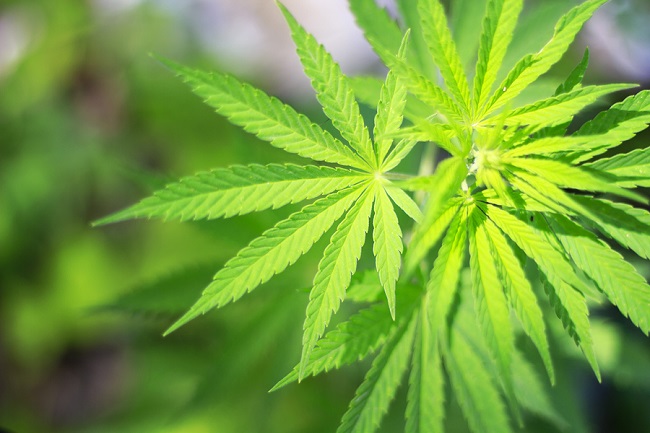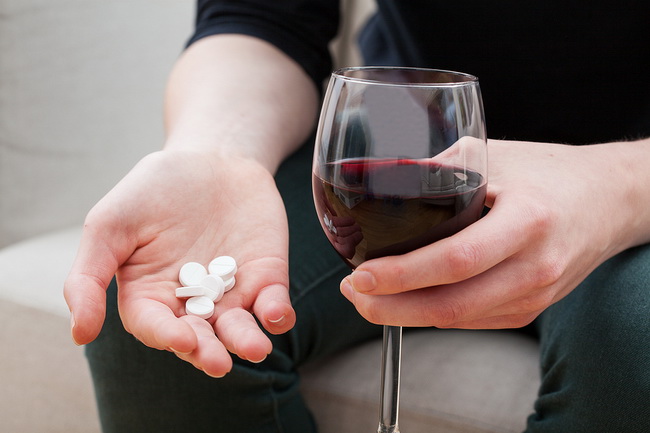- Make It Yourself Lavender Heart-Shaped Bath Bombs!
- 20 Things You Never Knew About “Down There”
- 12 Best Foods For Those Suffering From Arthritis Pain
- 12 Personal Hygiene Mistakes Almost Everyone Makes (Mom Never Told You About #4!)
- 15 Medicinal Plants And Herbs From The Cherokee People
- 12 Mind-Blowing Benefits Of Drinking Coconut Water During Pregnancy
- 12 Outstanding Winter Foods That Won’t Fatten You Up Like A Christmas Turkey
This One Thing is Leading to Fewer Prescription Drug Deaths

Photo credit: bigstock.com
The journal JAMA Internal Medicine published a study that showed that states which had legalized medical marijuana had a 25 percent drop in the number of deaths that were related to prescription drug overdoses.
The scientists who conducted the study found that the legalization of marijuana makes it more easily available for subjects with chronic pain and it provides a much less lethal alternative for managing to control pain over the long term.
When this research program began back in 1999, only 3 states had legalized medical marijuana. The study continued through 2010, at which time it was legal in 23 states and the District of Columbia. Medical marijuana has recently been legalized in all 50 states.
The states that were studied were the ones that allowed medical marijuana at the time. The study shows that those states had 1,729 fewer overdose deaths in 2010 than in states that still outlawed medical marijuana.
Statistics from the CDC say that deaths from prescription painkillers have literally gone through the roof over the past 20 years, jumping 118 percent between 1999 and 2011. The CDC estimates that about 113 people die each day from drug overdoses and almost 7,000 people end up in hospital emergency rooms due to overdoses.
A researcher and physician working out of the University of Pennsylvania, and the lead author of this study, Dr. Marcus Bachhuber, stated that although he did expect to see some changes between states that legalized marijuana and those that did not but he was shocked that the number were so huge.
Dr. Bachhuber said that he dealt with many people who had problems with chronic pain and they sometimes told him that the only thing that worked to control their pain was marijuana. Read more how to stop chronic pain in 2015.
Doctors have been using a combination of different pain killers for quite some time, including Tylenol combined with opioids. When combinations of pain killers are used, they are generally able to reduce the amount of opioid dose, thereby decreasing the risk of an overdose.
Continue to Page 2

Photo credit: bigstock.com
However, according to a professor in the Department of Health Policy and Management at the Philadelphia Veterans Affairs Medical Center, Dr. Colleen L. Barry, states that allow medical marijuana allowed doctors to use it as a replacement for other types of painkillers that carried a much greater health risk.
As our awareness of the problems of addiction and overdose that go along with the use of opioid medications such as Vicodin and OxyContin, doctors might just be choosing to treat pain completely, or least in part, with medical marijuana.
The use of medical marijuana means that there is the potential to save a large number of lives. Many people are rethinking what they have been told about the relative harm as compared to the relative benefits of marijuana.
Of course some people don’t like the results of this study and doubt that a connection can be drawn between fewer deaths and the use of medical marijuana. Some people are concerned that patients might end up abusing their marijuana, as they would their prescription painkiller. There are also concerns that increasing access to marijuana also increases the risk that children or young people will begin abusing it. There really is no need to worry, however, as there has never been a reported case of anyone overdosing on marijuana.
SEE ALSO: Make Your Own Natural Salve for Pain Relief
Dr. Bachhuber and his research team would like to conduct more research so they can clearly understand the long term effects that might come with the regular use of cannabis, even for patients who have serious health conditions.
References:
Marcus Bachhuber, M.D., researcher, Center for Health Equity Research and Promotion, Philadelphia Veterans Affairs Medical Center
John Thomas, J.D., M.P.H., professor, Quinnipiac University School of Law, Hamden, Conn
Bradley Flansbaum, D.O., M.P.H., hospitalist, Lenox Hill Hospital, New York City; Aug. 25, 2014, JAMA Internal Medicine

































Kitsy WooWoo
Mar 16, 2015 at 12:33 pm
“This One Thing is Leading to Fewer Prescription Drug Deaths”
Another “one thing” is to stay the hell away from docs and their deadly prescription drugs in the first place.